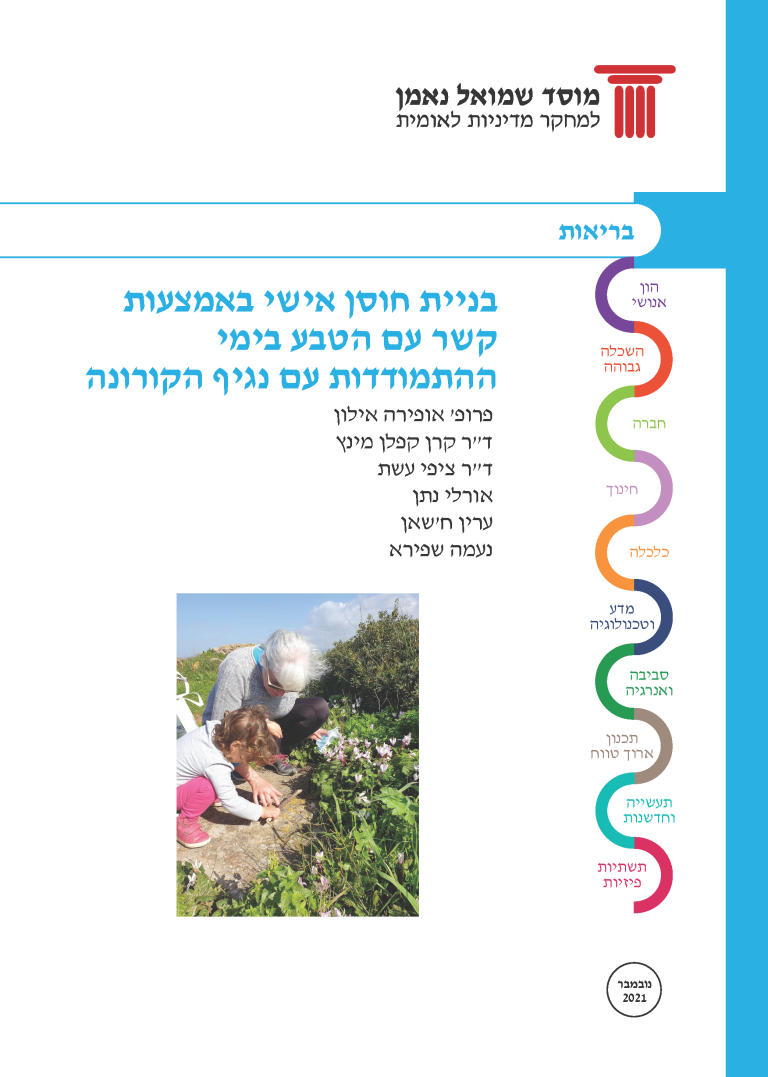The research is conducted in collaboration with the Shamir Research Institute and funded by the Ministry of Science.
During the time of COVID-19 pandemic, the public in Israel has experienced various stressful events. Stressful life events often lead to psychological stress and impair health.
Promoting personal resilience is therefore an essential part of adaptation in such times.
The aim of this research was to study how contact with nature can contribute to the promotion of resilience.
The study focused on individuals’ emotional state, the contribution of various determinants for explaining it, and the ways exposure to nature under the restrictions may provide some relief.
The study was based on an online questionnaire in Hebrew and Arabic distributed to the grown-up population in Israel, and an intervention in which participants watched pictures of views, before filling up the questionnaire.
The questionnaire was distributed in two phases. The first phase was in the last week of the first lockdown, and the second phase was in the first week after the ending of the first lockdown: between 3-5-2020 and 10-5-2020.
The picture-viewing intervention took place only in the first phase of the research.
All together 1146 full questionnaires were collected.
The findings show that contact with nature improves mental health and can promote mental resilience during the corona crisis, both during the lockdown period and when there is no closure. It is also shown that a large part of the public reports that there is no nature near their home.
Moreover, among the population that has nature near home there were significant differences between men, who spent time in nature, than women.
Another important finding is that even given a state of economic worsening that involves higher levels of situational anxiety, contact with nature moderates the level of situational anxiety, and leads to lower levels of this variable.
It was also found that even viewing nature images is related to mental well-being indices.
Those who viewed nature images had lower situational anxiety levels than those who did not view the images at all.
Among the indices examined in the study that were most significant for influencing the range of indices of mental well-being were the index of nature near the house and nature reflected in the windows of the house.
After the lock-down, it was found that the preferred activity was going out to nature.
The research highlights the importance of promoting urban nature and providing an equal opportunity to availability and accessibility to daily contact with nature for all citizens even in normal days and even more so in times of crisis.
The recommendations based on findings could help make decisions when dealing with similar emergencies in the future.
Research findings were published in Journal of Environmental Psychology












